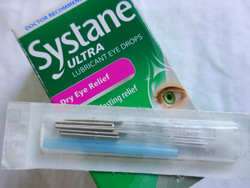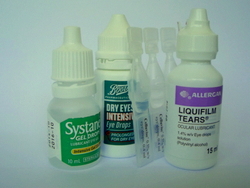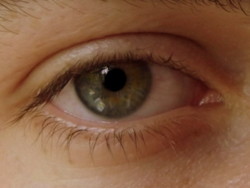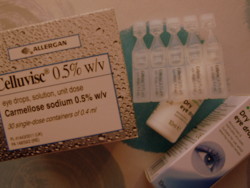 Researchers in the Department of Ophthalmology, University Hospital Dresden, Germany looking at acupuncture and glaucoma, have found that blood flow to the eyes can be improved by giving acupuncture to patients with primary open-angle glaucoma. Disturbances in ocular blood flow have been coming under scrutiny as a cause of visual field damage in glaucoma patients.
Researchers in the Department of Ophthalmology, University Hospital Dresden, Germany looking at acupuncture and glaucoma, have found that blood flow to the eyes can be improved by giving acupuncture to patients with primary open-angle glaucoma. Disturbances in ocular blood flow have been coming under scrutiny as a cause of visual field damage in glaucoma patients.
In the randomised study, 56 patients aged 32 to 69, were assigned to receive either a single acupuncture treatment using acupuncture points traditionally used to benefit eye health, or to a single treatment using points which are not specific to eye health. Ocular blood flow parameters were measured before treatment, and again ten minutes afterwards. Pulsatile ocular blood flow was seen to increase significantly after only the eye-specific acupuncture treatment.
(The short-term effect of acupuncture on different ocular blood flow parameters in patients with primary open-angle glaucoma: a randomized, clinical study. Clinical Ophthalmology, 19 July 2018.)

 Investigators at the Singapore Eye Research Institute have found that acupuncture can help dry eyes by providing benefits in addition to those provided by artificial tears. A total of 150 patients aged 40 to 85, were randomly allocated to receive either artificial tears alone (Systane Ultra four times per day), artificial tears plus eight acupuncture sessions (delivered twice a week), or artificial tears plus a Chinese herbal supplement traditionally used for dry eyes. Treatment took place over a one month period.
Investigators at the Singapore Eye Research Institute have found that acupuncture can help dry eyes by providing benefits in addition to those provided by artificial tears. A total of 150 patients aged 40 to 85, were randomly allocated to receive either artificial tears alone (Systane Ultra four times per day), artificial tears plus eight acupuncture sessions (delivered twice a week), or artificial tears plus a Chinese herbal supplement traditionally used for dry eyes. Treatment took place over a one month period.

 South Korean researchers have found that acupuncture out-performed artificial tears in the treatment of dry eyes. A total of 150 patients with moderate to severe dry eye syndrome, were enrolled in a multicentre, randomised, controlled trial. Participants were randomly allocated to receive either acupuncture for four weeks, or treatment with artificial tears (sodium carboxymethylcellulose). After one month, both groups showed similar improvements in dry eye symptoms and quality of life, but tear film stability was significantly greater in the acupuncture group. Additionally, at eight weeks following cessation of acupuncture, the acupuncture patients exhibited significantly improved dry eye symptoms compared with the control group.
South Korean researchers have found that acupuncture out-performed artificial tears in the treatment of dry eyes. A total of 150 patients with moderate to severe dry eye syndrome, were enrolled in a multicentre, randomised, controlled trial. Participants were randomly allocated to receive either acupuncture for four weeks, or treatment with artificial tears (sodium carboxymethylcellulose). After one month, both groups showed similar improvements in dry eye symptoms and quality of life, but tear film stability was significantly greater in the acupuncture group. Additionally, at eight weeks following cessation of acupuncture, the acupuncture patients exhibited significantly improved dry eye symptoms compared with the control group.